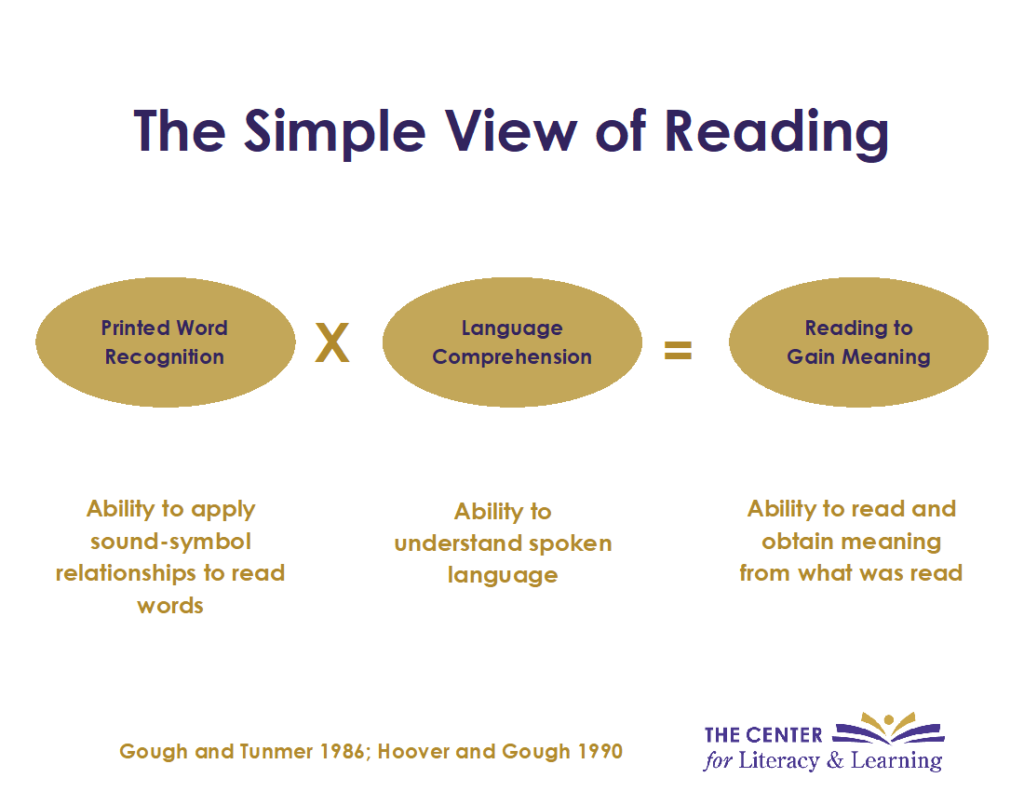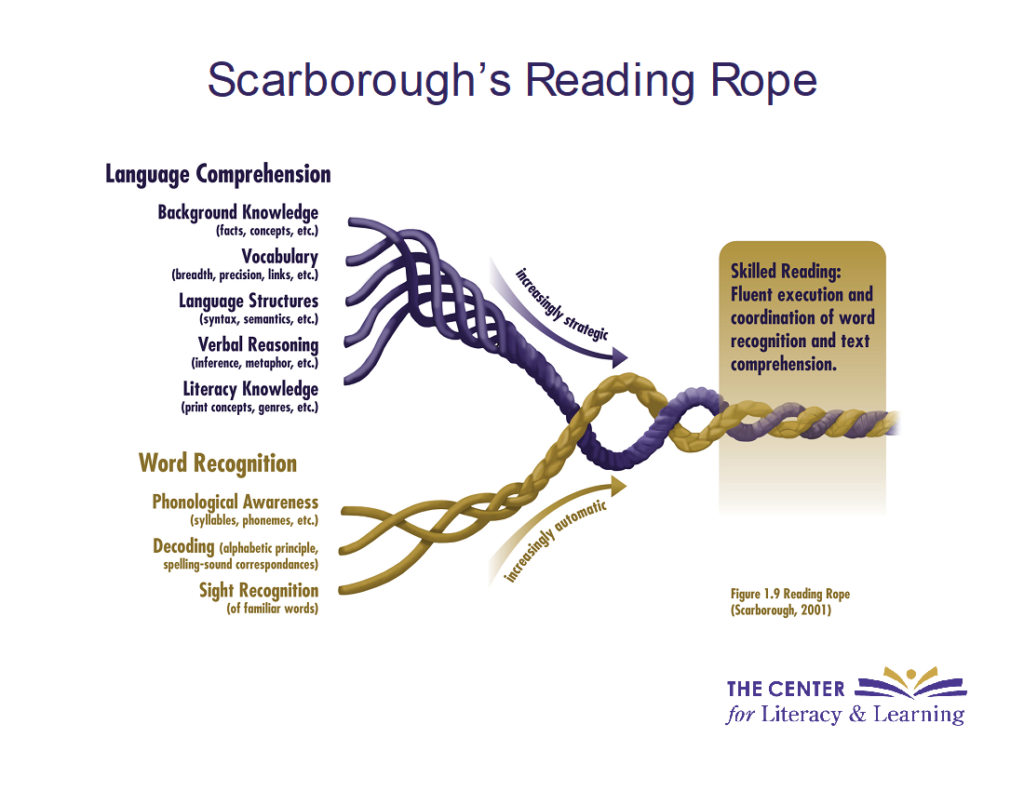A Closer Look at Skilled Reading: The Importance of Vocabulary and Background Knowledge
By: Alicia Gehrls, Regional Literacy Specialist
There’s more to reading than meets the eye. Printed word recognition is only one of the many components of skilled reading. To understand what is read, one must make connections to the words lifted from the page, and to make connections, one must be familiar with the vocabulary and have some background knowledge of the topic.
What the Science of Reading Proves:
The Simple View of Reading proposes that reading comprehension is the product of printed word recognition and language comprehension (Gough & Tunmer, 1986, Hoover & Gough, 1990).

Even if someone has solid printed word recognition but cannot understand the words as he decodes them, he will be unable to gain meaning from what he reads. To better understand spoken language, one must build his vocabulary and increase background knowledge.
Scarborough’s Reading Rope proposes that there are numerous interwoven components necessary for skilled reading. The importance of each component is highlighted by the depiction of the reading process as a rope (Scarborough, 2001). If any of the strands of a rope are frayed or torn, the rope is not strong. The same is true of the reading process.

The first two skills listed in the Language Comprehension portion of The Rope are background knowledge and vocabulary, two closely related concepts. To be a skilled reader, one must know, understand, and be able to retrieve from memory facts and concepts associated with an infinite number of topics. Skilled readers also have breadth and depth of vocabulary, a vast personal dictionary of words they understand and can use correctly in context, identify multiple meanings of, and link to other known words.
How Can We Use the Research to Improve Reading?
Engage in Rich Conversations
People engage in fewer enriching conversations; therefore, they miss learning opportunities. When we engage in discussion, we analyze information and organize our thoughts to formulate a response, and we gain knowledge from conversations about new concepts and ideas. To provoke thought and improve oral language skills, children and caregivers should engage in regular discussions in the home. Conversations at school between teachers and students and students and their peers help build vocabulary and background knowledge, thus improving necessary components of skilled reading.
Utilize Effective Vocabulary Instruction Techniques
Explicit instruction, repetition, and review are necessary for students to store words in their lexicon or mental dictionary. Acquiring a vast vocabulary requires in-depth study of words, including learning the multiple meanings of a word, its etymology, and its part(s) of speech. Additionally, students learn new terms best when grouped by topic, and the teacher uses visuals to aid instruction, models the use of the words, and encourages student use of the words. Teaching prefixes and suffixes and their meanings also significantly increases students’ vocabulary, and an extensive vocabulary is crucial for skilled reading.
Provide Enriching Experiences
We learn from our experiences, so we must provide our children with experiences at home and school. Virtual field trips allow students opportunities to experience places and cultures. Additionally, educational television programs and video content build vocabulary and background knowledge by providing visuals of everything from animals to ancient creations and insight into historical events. Technology and connectivity allow children to engage in experiences that build vocabulary and background knowledge, vital components of skilled reading.
Building vocabulary and background knowledge increases reading proficiency regardless of age or reading level. To learn more about the reading process, take a closer look at the Science of Reading.

Leave a Reply